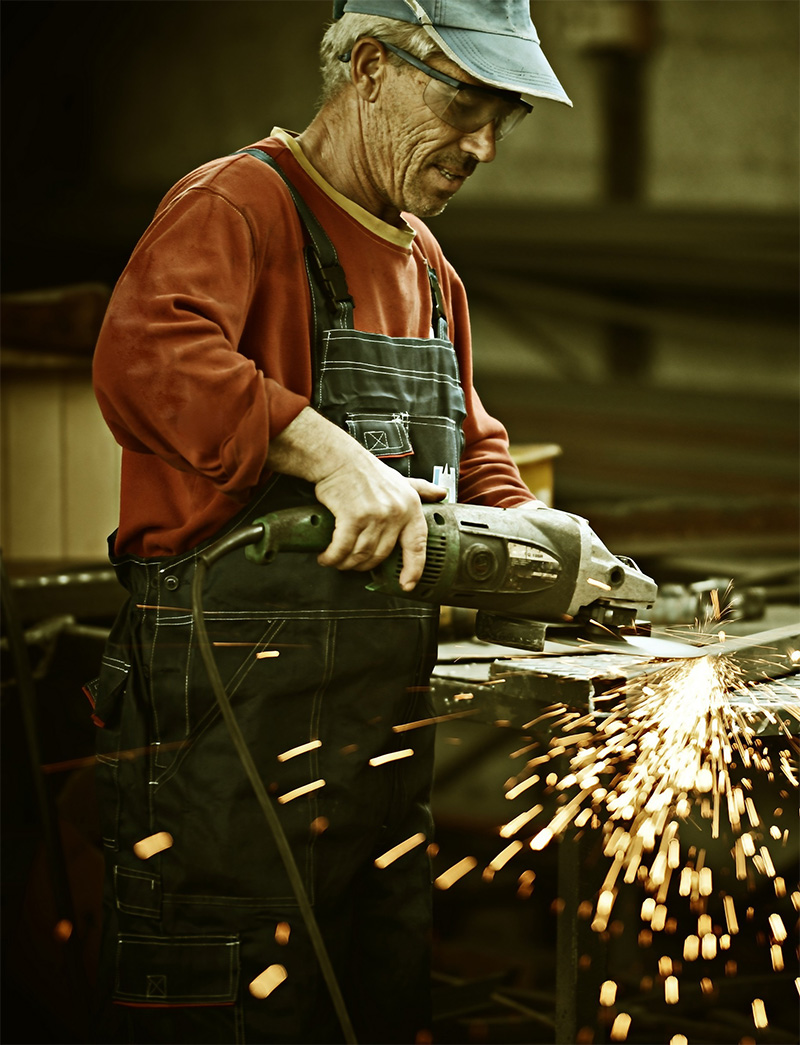
The COVID-19 pandemic is disrupting almost every component of daily life in the United States, with more and more Americans coming to terms with what the “new normal” will look like. Yet, despite the tremendous shock waves with more than 90,000 dead and millions unemployed, our politics is regrettably more polarized than ever. Fortunately, there is an issue on which Joe Biden and Donald Trump can find common ground by standing with American manufacturing workers who are essential to a strong national economy and vibrant middle class.
As a governor and senator representing Indiana for many years, I’m the first to admit that policies hurting Indiana workers are deeply personal to me. The Hoosier State has more manufacturing employment per capita than any other. These issues also run in my family. In 1980, my father, also a U.S. senator, made his final campaign stop at the Alcoa smelter in Warrick County, Indiana. Recently, the smelter fell into dire straits as illegal, subsidized foreign aluminum surged into the United States, forcing the location to be shuttered.
However, under the Section 232 aluminum program, which gives the president authority to impose tariffs on aluminum and steel imports, the plant was successfully restarted in 2018, bringing back more than 600 great Indiana workers with good jobs that support their families and the local community.
Unfortunately, those 600 jobs are once again threatened. The Canadian government, holding the United States-Mexico-Canada Agreement hostage, lobbied Congress and the administration to lift the Section 232 aluminum tariffs in exchange for Canada agreeing not to surge aluminum exports.
But Canada has not honored its commitment, and aluminum imports from Canada once again are surging into the United States.
Regrettably, in recent days, this surge caused 700 American aluminum workers to lose their jobs in Washington state. While American aluminum workers are feeling the pain, these jobs are being outsourced to Canada, where a Canadian smelter was restarted after the government there provided subsidies to its industry in response to the Section 232 tariffs. Once again, it was announced that the Warrick County, Indiana smelter is up for “strategic review” and possible closure as well.
While I support a rules-based trading system, this only works if those standards are enforced. The Canadian government agreed that if their producers surged imports into the United States, undermining the relief, the tariffs could be re-imposed. Objectively, the current Canadian surge is in violation of that commitment. The Democratic Party has supported a rules-based trading system for decades now, and we hope that Republicans and the Trump administration will too. We must be willing to enforce those rules, if we are going to ensure that our trading partners live up to the commitments that they agreed to. Canada made a commitment; we must now ensure that they live up to that pledge.
My tenure on the Senate Armed Services and Intelligence committees helped me understand the importance of protecting domestic U.S. supply chains, strengthening the defense industrial base, and putting national security at the heart of U.S. policymaking. Primary aluminum production is essential to U.S. supply chains and plays a very critical part to our national security infrastructure. The current pandemic reminds us that maintaining a healthy domestic supply chain to keep essential industries running is crucial to our national well-being.
To protect American manufacturing workers in Indiana and to put economic and national security first, we must restore a broad-based 10% tariff on all imports of aluminum, including from Canada, and reduce exemptions. This is a very simple and easy policy fix that only requires our trading partners to live up to their commitments.
My message is simple: The elections this fall will be close and probably be decided by middle-class workers who feel fed up with both Washington and foreign nations that break the rules at our expense. Both presidential candidates and both parties have a strong interest in leveling the playing field for manufacturing.
I am confident our next president and our next majority party in the Senate will succeed by standing with manufacturing workers in critical swing states and standing up for American aluminum workers in Indiana and elsewhere across our great nation.
I have no doubt that we can ultimately prevail against the global pandemic and the economic destruction it is causing. To do so, we will need leaders – Joe Biden, Donald Trump, Republicans, Democrats – with the courage and strength to insist on a good deal for American manufacturing.
Evan Bayh served as a U.S. senator from Indiana from 1999 to 2011 and as the 46th governor of Indiana from 1989 to 1997.